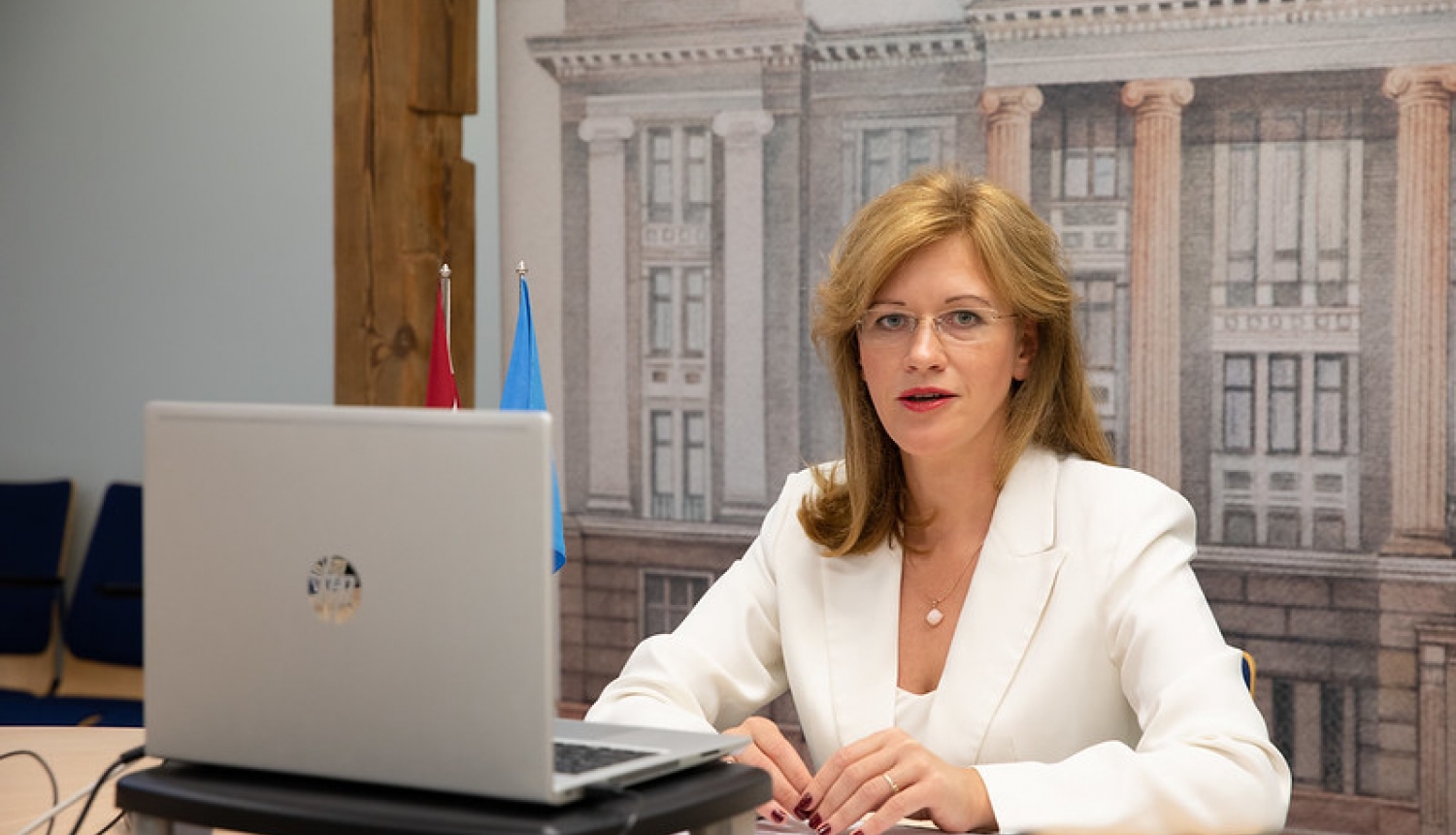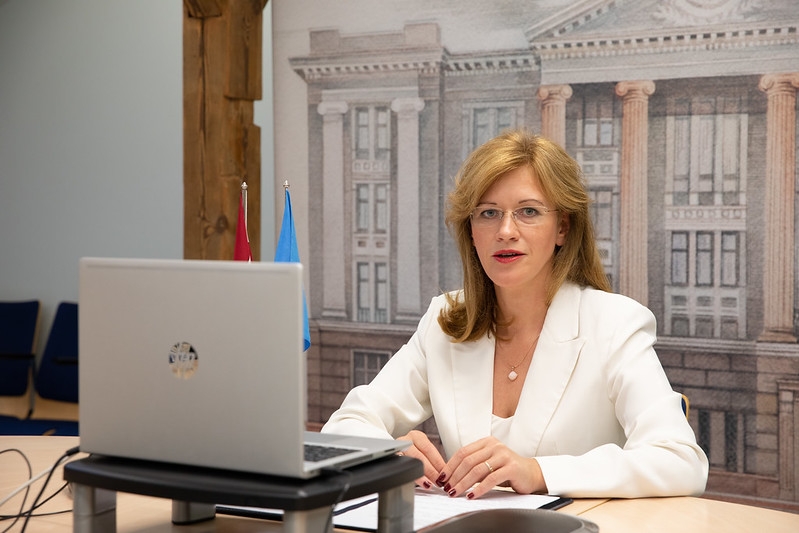On 4 September 2020, Zanda Kalniņa-Lukaševica, Parliamentary Secretary of the Ministry of Foreign Affairs of Latvia, took part in an informal United Nations Security Council video conference (in the so-called Arria format) on the human rights situation in Belarus.
When addressing participants of the UNSC meeting, Zanda Kalniņa-Lukaševica called for the UN Human Rights Council to convene an extraordinary session on human rights abuses which have taken place in Belarus. She also expressed support for the work of the United Nations Resident Coordinator in Belarus. The Parliamentary Secretary, as Latvia’s representative to the meeting, supported the proposal of the Chairperson-in-Office of the OSCE and the incoming Chairperson-in-Office to pay a visit to Belarus, and she also asked that the OSCE Representative on Freedom of the Media react immediately to the violations of the freedom of media in Belarus.
The Parliamentary Secretary underlined that the 9 August Belarusian presidential elections were not fair and free. International observers from the OSCE and European Council were unable to monitor the elections. Latvia strongly condemns the falsification of the presidential election results in Belarus, the violence against peaceful protestors, the detention of journalists and the pressure that the Belarusian authorities have been putting on religious congregations which they suspect of sympathizing with the opposition.
”Latvia urges the Belarusian authorities to stop the persecution of peaceful protesters and release all those who have been unfairly detained without delay. We call upon the Belarusian government to immediately engage in a genuine political dialogue with the opposition and civil society. We believe that the best way forward is through new presidential elections in the presence of international observers. Latvia supports an independent and democratic Belarus, and we stand by its people,” Zanda Kalniņa-Lukaševica underscored during her speech.
The Parliamentary Secretary informed participants of the UNSC meeting about how the Latvian government will be providing 150,000 EUR for Latvian NGOs to assist Belarus civil society in various areas - legal, practical, medical, and psychological as well as for strengthening independent media. She said that Latvia together with the other Baltic States has put in place a travel ban against 30 Belarusian officials who organised and supported the falsification of the presidential elections and those who supported the beating and suppression of peaceful protestors.
Participants in the meeting included the UN Special Rapporteur on the human rights situation in Belarus, Anaïs Marin; Belarusian opposition presidential candidate, Sviatlana Tsikhanouskaya; Valiantsin Stefanovic, Vice-Chairman of the Human Rights Centre, Viasna; the rights expert of the Belarusian Association of Journalists, Volha Siakhovich; and the meeting was chaired by Estonian Foreign Minister, Urmas Reinsalu.
Background information
The Arria format meetings of the UN Security Council (UNSC) are informal in character and any member of the UNSC has the opportunity to hold such meetings. The UNSC is composed of 15 members, five of which are permanent members and which also have veto rights (USA, UK, France, Russia, and China) and there are ten other non-permanent members elected for two-year terms based on a regional principle, and each year there are elections for five of those ten non-permanent members. Estonia was elected as a non-permanent member of the UN Security Council and is serving on the Security Council from 2020-2021.





